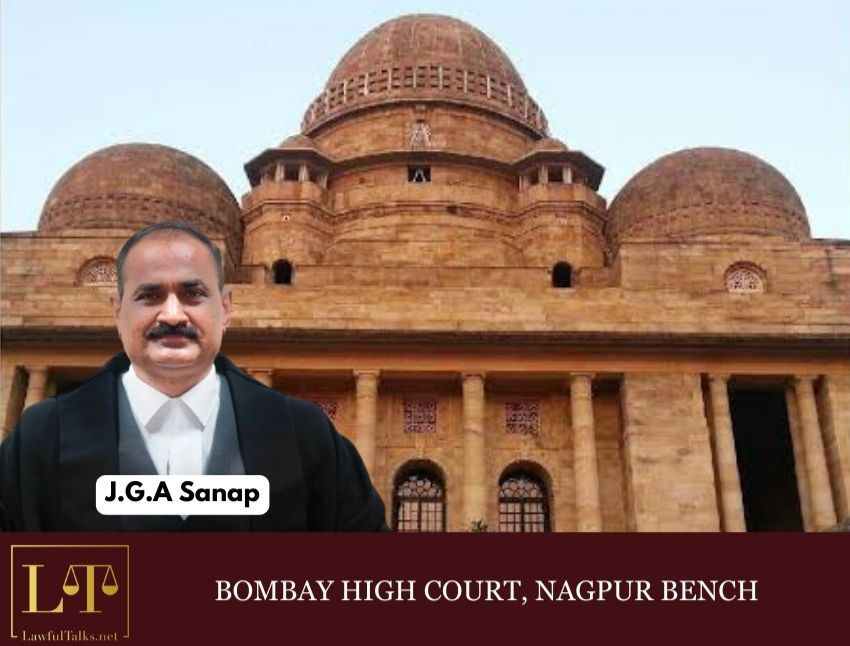Allahabad HC Sets Aside Afzal Ansari's Conviction, Allows Him to Continue as MP

A “single instance” of following a girl or victim does not amount to stalking as defined under Section 354-D of the Indian Penal Code (IPC) or the Protection of Children from Sexual Offences (POCSO) Act ruled Justice Govind Sanap of Nagpur Bench of the Bombay High Court.

The factual matrix of the instant case dates back to the year 2020, when an informant, a resident of Village Khadka, Akola, filed a complaint regarding the harassment of her daughter by Accused No. 1 and Accused No. 2, both of whom were from the same locality. The victim, a 7th-grade student, informed her mother in January that both accused followed her to a river, where Accused No. 1 proposed to her but she declined. On 26th August 2020, while the informant was away, Accused No. 1 entered their home, gagged the victim, and assaulted her. The victim screamed for help, and her sister intervened, causing the accused to flee. He then threatened the victim of serious consequences if she disclosed the incident. The victim however informed her mother, who sought to seek help from the accused's parents but they remained indifferent to the happenings. Fearing repercussions, the family delayed reporting the incident until 4th September 2020, when they filed a complaint at Borgaon Manju police station. A thorough investigation ensued, involving medical examinations, witness statements, and the collection of evidence. The accused were arrested, and a charge sheet was filed. At trial, the accused denied the allegations, claiming they were falsely implicated due to disputes with the informant. However, the Trial court relied on the prosecution's evidence to convict them. The accused subsequently appealed the conviction in the Bombay High Court.
The defense counsel for Accused No. 1, Ms. Neerja Chaubey, argued that there was no evidence to support the allegations of stalking, house trespass, or sexual harassment. She pointed out that the victim had described only one incident of stalking in January and there was no evidence of trespass or sexually colored remarks. She also highlighted inconsistencies in the victim’s and informant’s testimonies, particularly the victim’s omission of key details, such as Accused No. 1 pressing her breasts in her initial statement to the Child Welfare Committee, which suggested that the statement may have been altered. The advocate also contended that the prosecution’s evidence regarding the victim’s birth date was inadmissible. Furthermore, the delay in reporting the incident—from 26th August to 4th September—was not satisfactorily explained, which, according to the defense, suggested that the complaint was fabricated.
The advocate for Accused No. 2, Mr. Jasprit Singh Chilotra, argued that no specific role had been attributed to his client and that there was no evidence to support any offense committed by him. He suggested that Accused No. 2 was falsely implicated due to his association with Accused No. 1 and could not be considered an abettor to the crime. Besides, he also argued on similar lines as the advocate for Accused No. 1.
The Additional Public Prosecutor, Mrs. Sonali Saware-Gadhwe, and the victim's advocate, Ms. S. H. Bhatia, submitted that the testimonies of the victim and her mother were clear, reliable, and sufficient to prove charges against the accused. They explained that the delay in filing the complaint was due to threats from the accused and the lack of support from the villagers. They also adduced evidence of the victim’s birth date as 28th August 2007 submitting that it was credible and urged the court to uphold the trial court’s conviction.
After reviewing the facts and the arguments presented by both parties, the court acknowledged the delay in lodging the FIR but deemed it justified, considering the threats from Accused No. 1 and the fear experienced by the victim's family. The court found that Accused No. 1 had persistently harassed the victim, declared his intention to marry her, and trespassed into her home to assault her. Despite the victim's mother's efforts to address the issue with the parents of Accused no.1, his behavior remained unchanged, rather it worsened. However, the court found insufficient evidence to implicate Accused No. 2 or to substantiate the charge of stalking against him. The court emphasized that a delay in filing the FIR does not diminish the credibility of well-substantiated evidence.
“It is to be noted that in order to attract the offence of stalking, the prosecution must prove that the accused repeatedly or constantly followed, watched or contacted a child either directly or through electronic, digital media. In view of this mandatory requirement of the offence of stalking, a solitary instance of following the victim would not be sufficient to make out this offence,” the court noted.
Thus, the court acquitted Accused No. 2, noting that he played no active role in the incident and was merely present outside the victim’s house during the assault. The court ruled that he could not be convicted for sexual assault or stalking. As for Accused No. 1, the court found the stalking charge unproven, as it involved only one instance of ‘following’ the victim. However, the court upheld his conviction for sexual assault, relying on consistent and credible testimony from the victim and her sister, which established that Accused No. 1 entered the house, gagged the victim, and pressed her breast.
Case Details: Amit Chavan vs State of Maharashtra Criminal Appeal 364 of 2022
Advocate for the Petitioner: Neerja Chaubey for Accused no. 1
Jasprit Singh Chilotra for Accused no. 2
Advocate for the Respondent: APP CA Lokhande for the State.
Adv. Sonali Saware-Gadhwe and SH Bhatia for the Respondent.

Anushka Bandekar
Advocate
Latest Posts
Categories
- International News 19 Posts
- Supreme Court 352 Posts
- High Courts 366 Posts




























































































































































































































































































































































































































































































































































































































































































































































